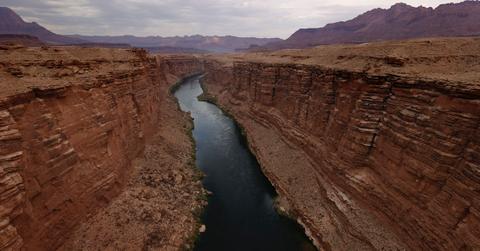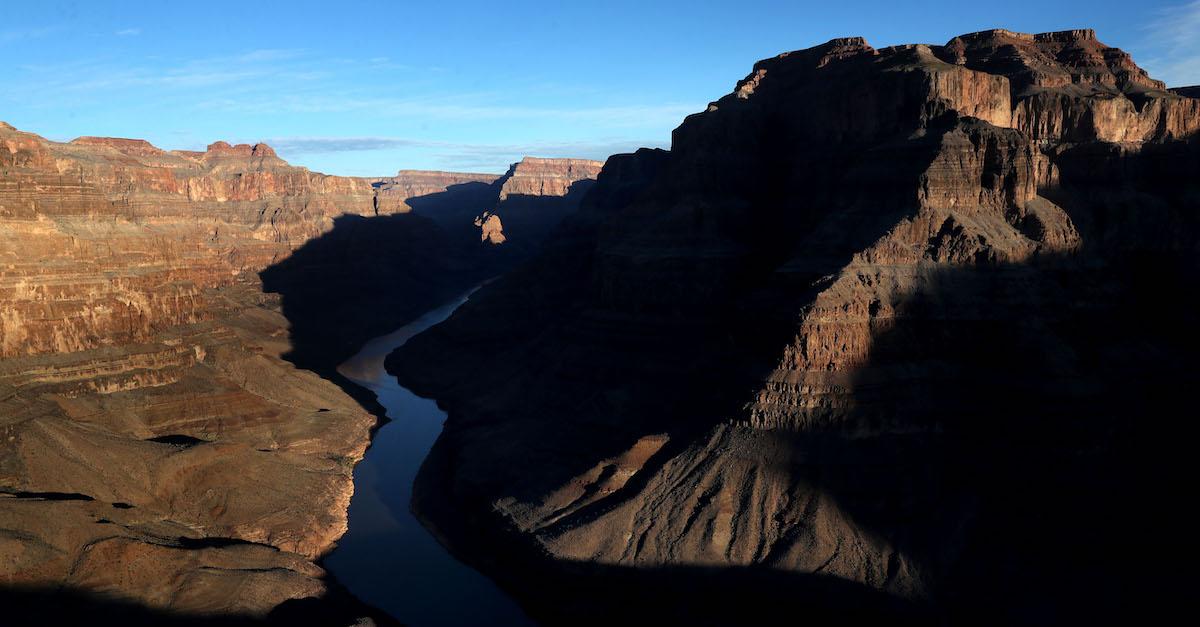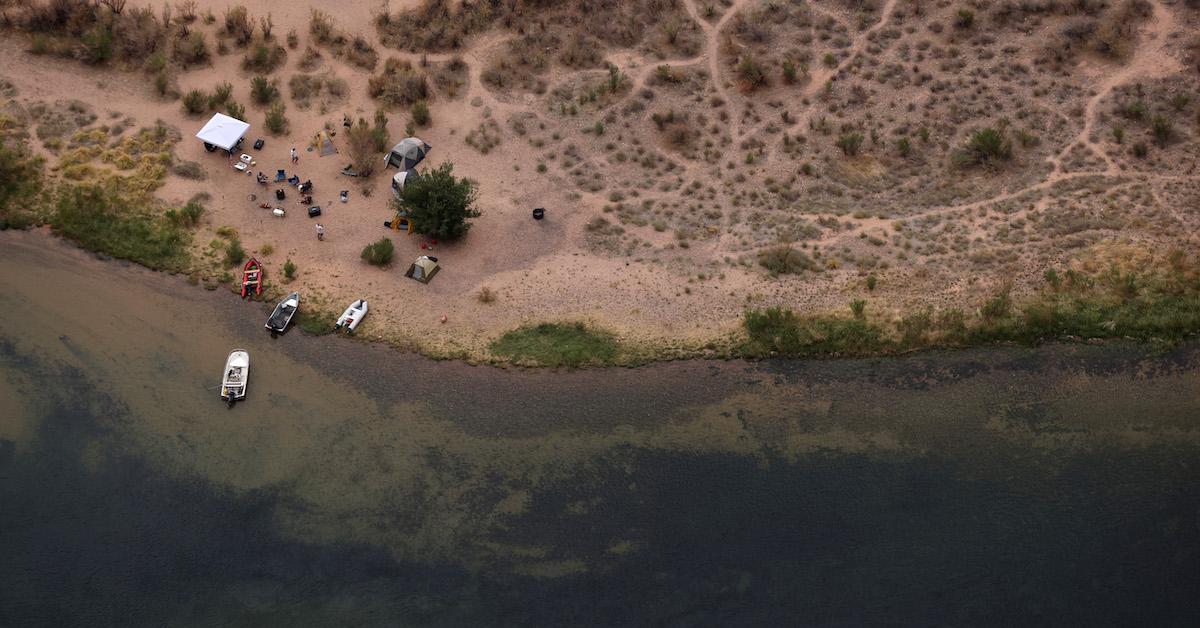Lake Mead and the Colorado River Shortage, Explained
Updated May 9 2022, 12:16 p.m. ET

With historic heat waves comes historic droughts, especially in the west — some of California's largest lakes are drying up, farmers across the region are suffering tremendously, and marine life is dying out. Likewise, the Colorado River has been facing a massive shortage, thanks to Lake Mead dissipating. But why are these bodies of water drying up?
“[The river shortage] is something that those of us in the climate community have been worried about for over a decade," Brad Udall, a climate scientists at Colorado State University, told CNN last year. "Climate change is water change, and many of the worst impacts we’re going to see out of climate change are through changes in the water cycle. Not only do we have to plan for these undesirable water outcomes, but we also have to get our act together and reduce greenhouse gases as fast as we can.”

Why is there a water shortage in the Colorado River and in Lake Mead?
In August 2021, the federal government's U.S. Bureau of Reclamation announced the Colorado River was experiencing its biggest water shortage on record, according to AZ Central. Although experts had predicted the extent of the shortage months prior, it was triggered by the drought in Lake Mead, which supplies Arizona, Nevada, California, and Mexico with water. Local governments then started scrambling to figure out how to supply approximately 40 million people with freshwater.
Experts believe Colorado River's water levels and Lake Mead's will plunge even more, and humankind is completely at fault. The ongoing climate crisis is getting progressively worse each year — and this is the worst drought the west has seen in about 1,200 years. Additionally, continuous population growth has resulted in increased water usage. Populations in cities that rely on the river such as Phoenix and Las Vegas are growing now more than ever, likely resulting in more future water cuts.
Unfortunately, ahead of California's 2022 dry season, Lake Mead is already facing record-low water levels, according to Sky News. Because water levels have plummeted so drastically, authorities have found human remains, and they expect to find more as the water continues to dissipate. The skeletal remains are reportedly believed to be Mafia-related, and not climate change related, though this is a shocking find amid all the chaos, to say the least.

Here's what federally-mandated consumption cuts mean for nearby communities:
The water consumption cuts are part of a 2019 agreement known as the Drought Contingency Plan, per Gizmodo. For now, the consumption cuts will primarily affect the agricultural industries in both Arizona and Nevada – farmers from both states expect their water supplies to be entirely cut off in 2023, forcing some growers to completely abandon their fields over the next few years. Some local governments will be providing funds to dig local wells, though won't be enough to support every farmer.
“The cutbacks are happening. The water's not there,” local Arizona farmer, Will Thelander, told Gizmodo. “We’ll shrink as much as we can until we go away. That’s all the future basically is.”
The restrictions will also control just how much water flows into Lake Mead, and other connected reservoirs. Hopefully the cuts won't trickle into people's homes, but only time will tell.